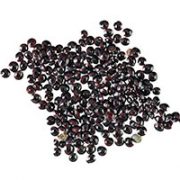The combination of seed kits and garden training has been proven to be successful in increasing the amount of vegetables the producing households grow — and in improving the nutrition of household members.
In Bangladesh, for example, the distribution of seed kits in combination with gardening training offered to women reduced deficiencies of iron, vitamin A and zinc in family members.
The World Vegetable Center’s seed kit/household garden model builds on more than 30 years of experience in this area. The model has three components:
- Year-round production of nutrient-dense fruit and vegetables
- Awareness raising about nutrition and health
- Strengthening key support systems, including women’s groups and seed systems
Want to know how WorldVeg seed kits improve the lives and livelihoods of smallholder farmers and their families? Take a look at some of our recent research:


READ MORE
Schreinemachers P, Patalagsa MA and Uddin N (2016) Impact and cost-effectiveness of women’s training in home gardening and nutrition in Bangladesh. Journal of Development Effectiveness 8: 473–488.
Schreinemachers P, Brown S, Roothaert R, Makamto Sobgui C and Toure SH (2018) Research to impact: the World Vegetable Center’s household garden model. Acta Horticulturae 36: 305–314.
Stoilova T, van Zonneveld M, Roothaert R, Schreinemachers P. (2019) Connecting genebanks to farmers in East Africa through the distribution of vegetable seed kits. Plant Genetic Resources.
World Vegetable Center (2016) The World Vegetable Center’s Approach to Household Gardeningfor Nutrition. World Vegetable Center, Shanhua, Taiwan. Publication No. 16-803. 35 p.

